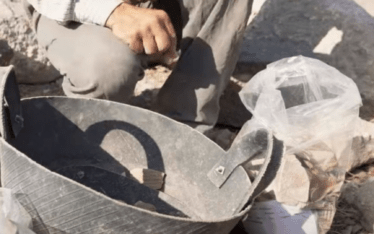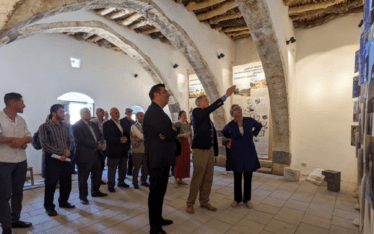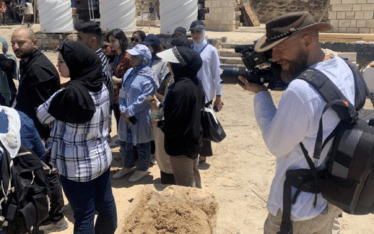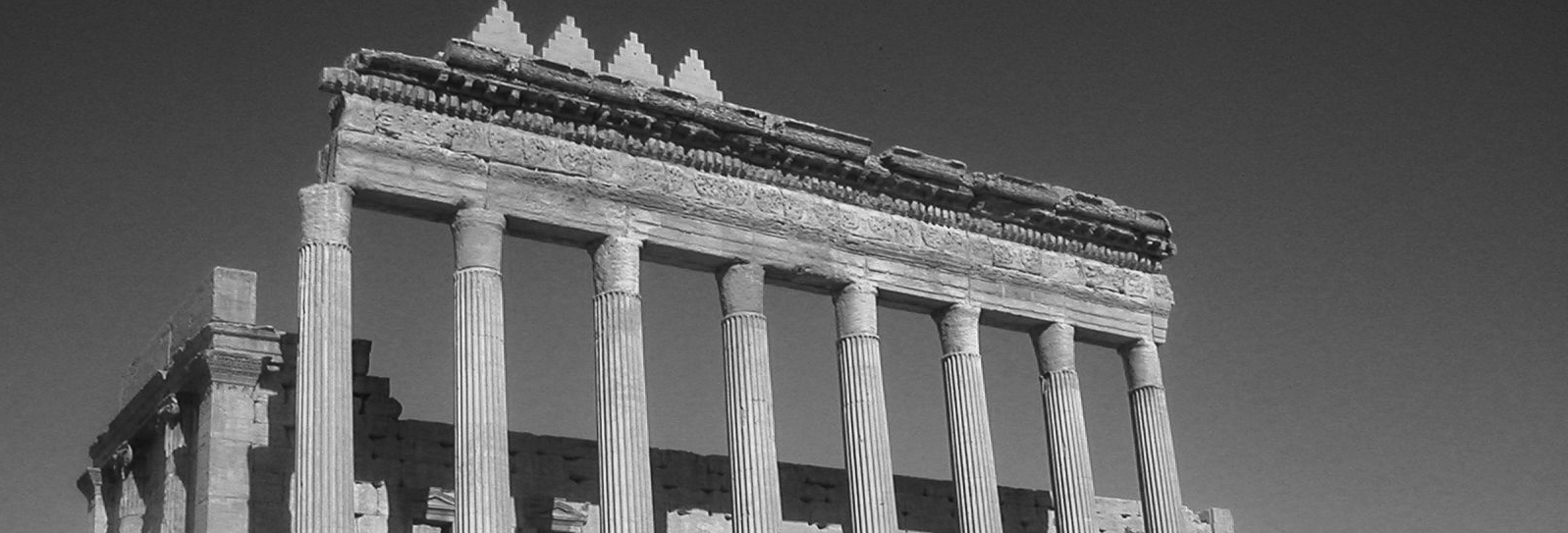
KulturGutRetter in Sudan | An emergency mechanism for cultural heritage in crisis situations
- Home
- KulturGutRetter in Sudan | An emergency mechanism for cultural heritage in crisis situations

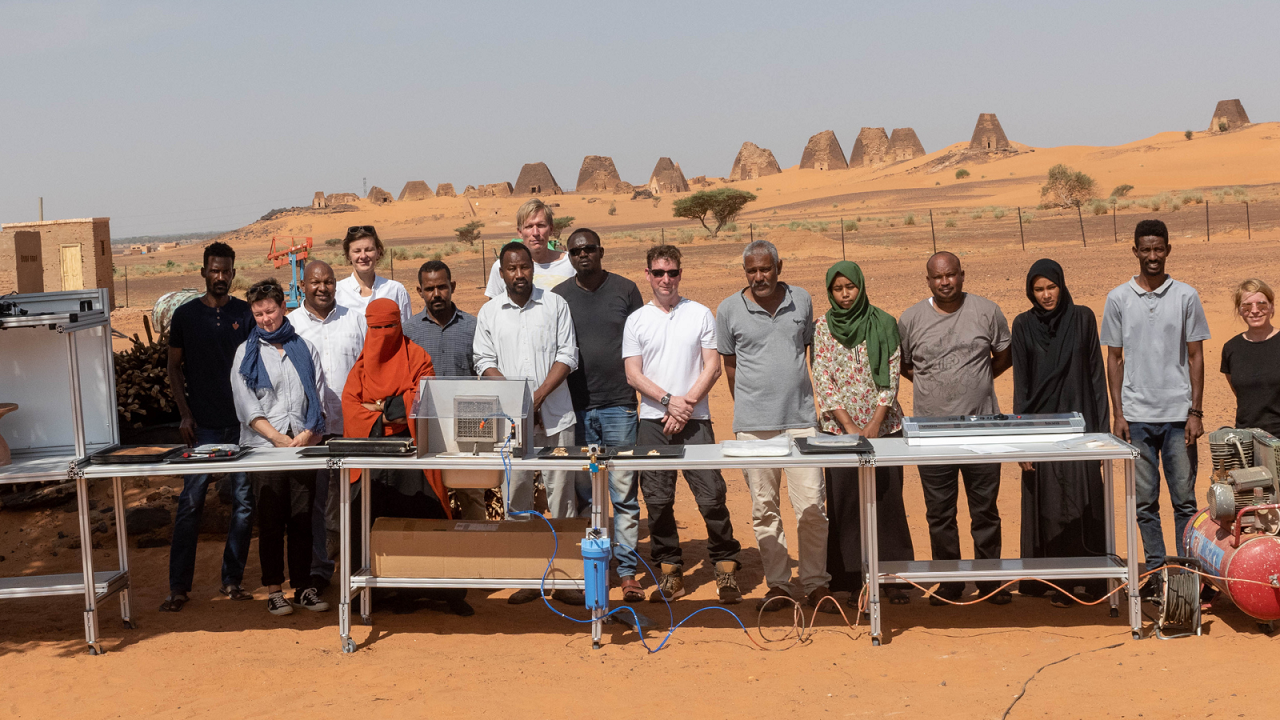
The German KulturGutRetter-project and the National Corporation for Antiquities and Museums practise the saving of mobile cultural heritage with prototypes of rescue modules for the documentation and conservation of objects of cultural heritage.
In the past crisis such as earthquakes, floods and fires have shown that in the event of such a disaster, action must be taken quickly. Climate change with its very different local effects also entails a wide range of threats to cultural heritage. To protect and preserve cultural heritage in all phases of a crisis effectively and sustainably, the essential requirements are well-prepared and rapidly available digital information as well as well-trained and competent decision-makers. For this reason, the German project “KulturGutRetter (KGR) – An emergency mechanism for cultural heritage in crisis situations” conducted a workshop at the National Museum Khartoum and at the World Heritage Site Meroe to introduce and practise emergency planning and the saving of mobile cultural heritage.
The team of the KulturGutRetter, together with Sudanese colleagues of the National Corporation for Antiquities and Museums (NCAM) tested newly developed modular conservation tables for the documentation, cleaning and packaging of smaller objects, including the basic standards and workflows. The KulturGutRetter team subsequently support at the same time the establishment of a conservation laboratory at the National Museum in Khartoum.
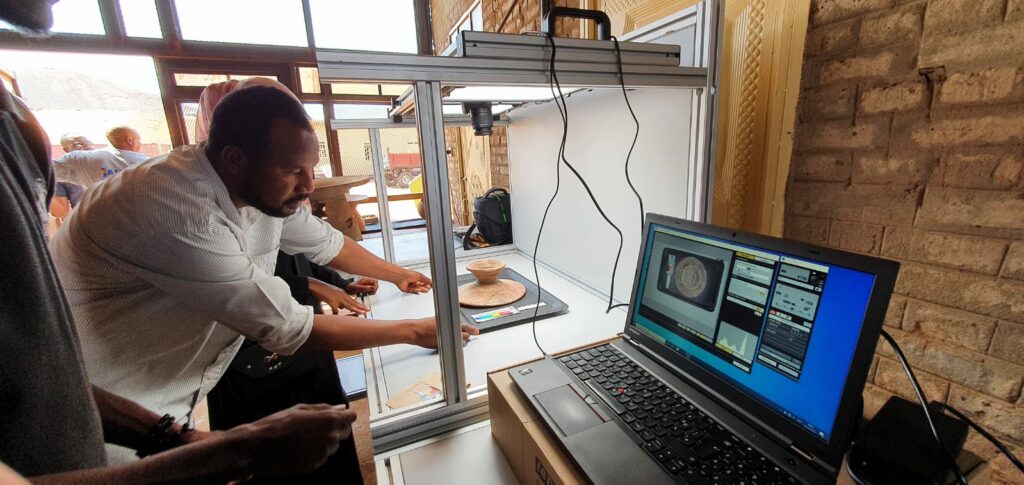
The modular tables are currently being developed at the Römisch-Germanisches Zentralmuseum–Leibniz Research Institute for Archaeology (RGZM) in Mainz in the framework of the KulturGutRetter project. The conservation and documentation tables are lightweight and standardized. They can be quickly assembled and fitted together as the situation requires and used for all kinds of damaged cultural property. Stations for digital photo documentation, wet cleaning and airtight packaging are only three of several prototypes, developed within the KulturGutRetter project. In a crisis situation the German Federal Agency for Technical Relief (THW) can transport the rescue modules in standardized containers to the location. They serve as a sustainably available and effective structure for the protection of cultural property.
Sudan has an extremely rich and diverse cultural heritage, ranging from the Stone Age to modern times. Investigations have uncovered an extraordinary collection of well over 80,000 historical artefacts and an ever-increasing number of outstanding archaeological sites. The pyramid cemeteries of Meroe are one of the most important archaeological sites in Sudan and listed as World Heritage by UNESCO. However, the site is adversely affected by environmental conditions such as the extreme Nile flood in autumn 2020 and ongoing desertification, urban growth, industrial and agricultural development. Preserving this unique heritage is as important as it is challenging.
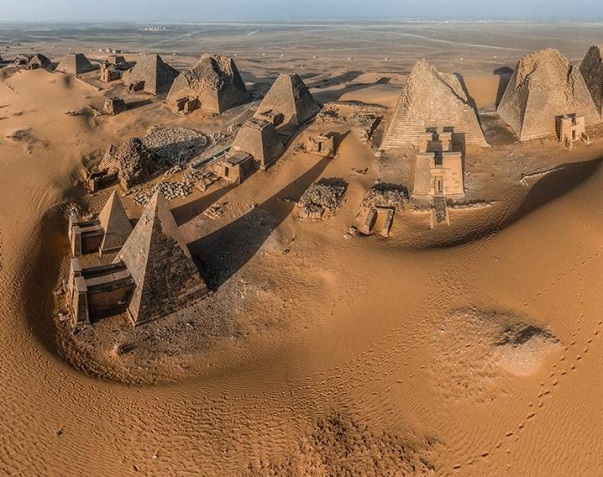
The pyramid cemeteries of Meroe are endangered by Nile floods and desertification | Photo: DAI, Pawel Wolf.
The most comprehensive Sudanese-German cooperation project in the field of conservation of archaeological sites is currently the Meroe Pyramids Project. Since 2014, NCAM and the German Archaeological Institute (DAI) have been carrying out large-scale documentation, research and conservation work as well as training courses for the development of sustainable site management at the World Heritage Site Meroe.
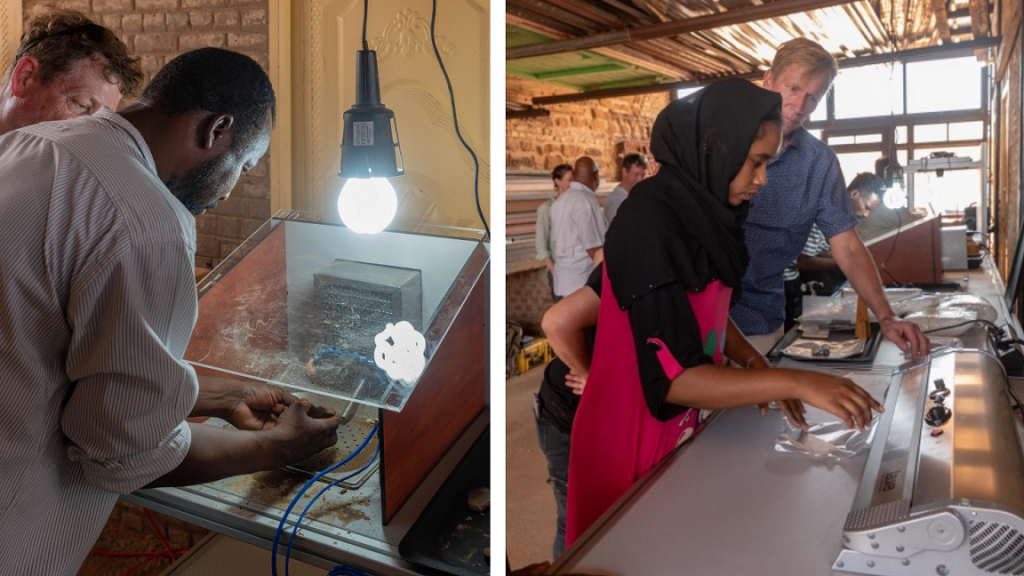
Training museum personelle at the wet cleaning and packiging station of the modular conservation tables developed within the KulturGutRetter project | Photo: DAI, Pawel Wolf.
The German Archaeological Institute and the KulturGutRetter support the Sudanese heritage agency NCAM, in the preservation and restoration of the country’s archaeological collections as well as archaeological sites. As a first key building block, the much-needed tools and materials for a conservation laboratory were handed over on August 21, 2021 in the presence of Dr. Graham Abdelgadir, Undersecretary at the Ministry of Culture, Tourism and Antiquities, and Iglal Elmalik, acting Director general of the Sudanese Monuments Authority, the National Corporation for Antiquities and Museums (NCAM). The workshop on emergency planning with practical training ads to the series of back-to-back activities to support the Sudanese heritage agency. The workshop finished on October 10, 2021, with the handover of the rescue modules of the KulturGutRetter to the newly established conservation laboratory at the National Museum in Khartoum in the presence of Thomas Terstegen, Ambassador of the Federal Republic of Germany to Sudan, and Iglal Elmalik.
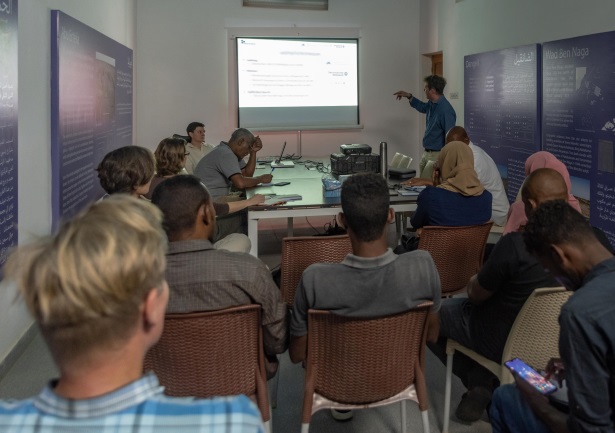
KulturGutRetter is currently carried out by the German Archaeological Institute (DAI), the German Federal Agency for Technical Relief (THW), and the Römisch-Germanisches Zentralmuseum – Leibniz Research Institute for Archaeology (RGZM) within the Archaeological Heritage Network (ArcHerNet). The aim is to establish a rapid response mechanism for the protection and preservation of cultural heritage in crisis situations worldwide.
Titelbild: Das Team der KulturGutRetter zusammen mit Museumspersonal in Meroe, Sudan | Foto: DAI, Pawel Wolf
Archaeological Heritage Network is made possible by many national and international partners. The Federal Foreign Office and the Gerda Henkel Foundation supports the network.
